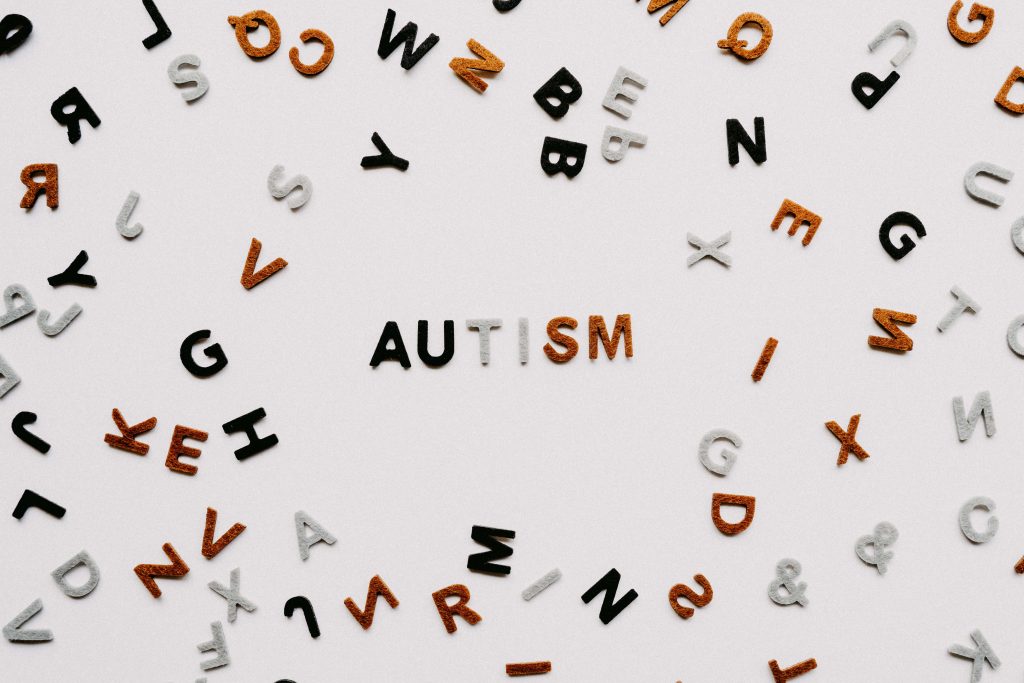When you think of autism, you might think of Raymond, the famous character from the movie Rain Man (1988). Of the documentary ‘Het beste voor Kees’ (2014, or the popular Netflix show Aytpical (2017). You probably envision a certain type of person, but autism is a disorder that can manifest itself in many ways! That is why in psychiatry, it is called Autism Spectrum Disorder (ASD). A spectrum is also known as a gradient. So, what autism looks like can differ from where someone is on the spectrum. Therefore, you cannot tell from the way someone looks, whether they have autism or not, and this entails many prejudices.
When do you have autism?
There are several criteria that you must meet to be diagnosed with autism. These criteria consist of social communication and social interaction problems and limited, repetitive behavior. Think, for example, of specific interests and under-, or hypersensitivity to certain sensory stimuli, such as loud noises. Within these two domains, the severity of symptoms may differ. Below I will discuss common prejudices about autism.
Prejudice
Autism mainly affects men
It used to be thought that autism was four to ten times more common in men than in women. We now suspect that the number of women with autism is much higher! But why don’t we know for sure? Research has shown that autism can manifest itself differently in women than in men, which is why women are often diagnosed later. Autism in women is often only recognized when it has already had a major negative impact on various parts of life. Women may be better at disguising their autism features, making symptoms less likely to be noticed. Girls with ASD are more likely than boys to imitate their environment, as a result of which they learn social behavior. Women also have less obvious interests than men. They often have fascinations that are not strange or stereotypical, such as an interest in animals.
People with autism are not social
Although people with autism can often be alone, this does not mean that they do not want social contact. People with autism often have just as much need for social contact as people without autism. However, social contact often costs them much more effort and energy, because of their under- or hypersensitivity to sensory stimuli. Social contact in people with autism can also look different in terms of content. They often prefer to talk about common interests or enjoy doing a common activity. Sometimes just each other’s presence is enough.
A scientific study from 2009 also shows that people with autism actually have an excess of emotional empathy. However, they often express their feelings and emotions differently, so that it may seem that they are unable or insufficiently able to empathize with others. The prejudice that people with autism have no feeling or empathy has also turned out to be incorrect.
People with autism are mentally impaired
This is not true! Autism affects all levels of intelligence, from people with intellectual disabilities to giftedness. This assumption can also cause a later diagnose of people with a higher IQ. People with autism who have average or above-average intelligence may exhibit compensatory behaviors. This means that they have taught themselves how to behave in certain situations, which allows them to more easily disguise certain symptoms of autism.
You can see if someone has autism
Sometimes you quickly notice that someone may have autism. In contrast, there are plenty of people with autism that you have no idea about. People with autism have often learned to adapt well to their environment, as described above. For years, they often didn’t know they had autism. In addition, every person is unique, including people with autism.
Qualities of autism
The life of someone with autism can have its necessary challenges in today’s Western society. It is therefore important, in addition to learning to deal with these challenges, to also look at the many qualities that people with autism possess. People with autism often have a lot of knowledge about specific topics, and they have an eye for detail because of the different ways of processing information. They often work carefully and make few mistakes. People with autism are also good at analyzing, reasoning, and coming up with creative solutions. They have a strong sense of justice and are often loyal and honest. There are many more qualities that people with autism possess that are of value in our society.
But you don’t look autistic at all
Tip: In the book ‘But you don’t look autistic at all’ by Bianca Toeps (professional photographer) describes how she has to deal with the stereotypical views about autism and work. In addition, she gives non-autistic people tips on how to deal with someone with autism, without relying on prejudices and stereotypes.
If you wonder whether you may have autism or if you want to learn to deal better with the challenges you face in daily life, consider requesting an exploratory conversation with a psychologist. First, go to your doctor for a referral.









